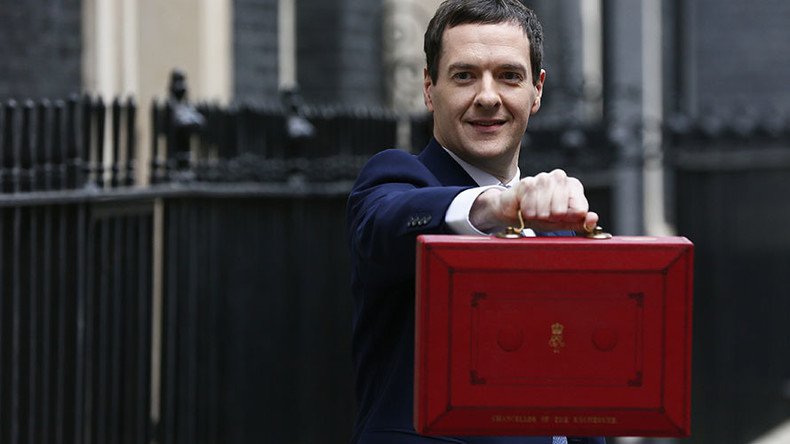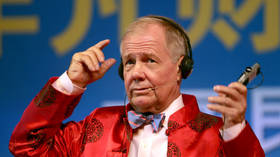£56bn ‘black hole’ lurking beneath Osborne’s budget - economists

Osborne’s budget offered juicy tax breaks for the wealthy, increased tax free personal income, and with a glance to the middle-class introduced a tax on sugary drinks. But under the vote-grabbing veil, economists warn of a looming £56 billion black hole.
The eye-catching measures on show also included a lower rate of corporation tax, help for small businesses and a saving scheme to help low-earners. Almost 20 times, Chancellor George Osborne insisted his budget was about putting the “next generation first.”
However, economists and MPs have questioned Osborne’s sums and the finances required to bring in the new measures.
In particular the Office for Budget Responsibility (OBR), set up by Osborne himself in 2010, pointed out that the chancellor is cutting more than he’s delivering.
OBR Director Robert Chote accused the chancellor of attempting to gain a budget surplus by the end of his tenure without considering the implications. He said the “giveaways” averaging £6 billion (US$8.6 billion) in 2017/18 and 2018/19 would be followed by “takeaways” averaging £13 billion in the following two years.
The £56 billion “black hole” which is likely to appear in Britain’s public finances would undermine the £27 billion extra spending Osborne announced in his Autumn Statement.
“The sofa has swallowed roughly two pounds this time for every one [pound] that it yielded last time,” Chote said.
The Scottish National Party (SNP) also joined the criticism. Deputy First Minister John Swinney said it “conceals a cut of £3.5 billon in public spending across the UK” and “will see a real-terms reduction of £1 billon in Scotland’s budget.”
Talking to RT, SNP MP George Keravan called Osborne’s plans “unworkable” and “full of stealth taxes” which will penalize the poor.
Labour’s Shadow Work and Pensions Secretary Owen Smith blamed Tory policies for creating a crisis of low pay and insecure work.
“The employment numbers are moving in the right direction. However, these statistics alone do not tell the full story.”
The Trade Union Congress (TUC) said it would be years before workers felt any benefits from the budget, saying pay would not return to pre-crash levels without higher rates of growth.
“Despite continued jobs growth, a full recovery in the value of wages is still years away. Average weekly earnings are still worth £40 a week less than before the crash and pay growth remains too slow,” TUC General Secretary Frances O’Grady said.
“The government needs to do more to build a high investment, high-productivity economy with more, better-paid work.”












